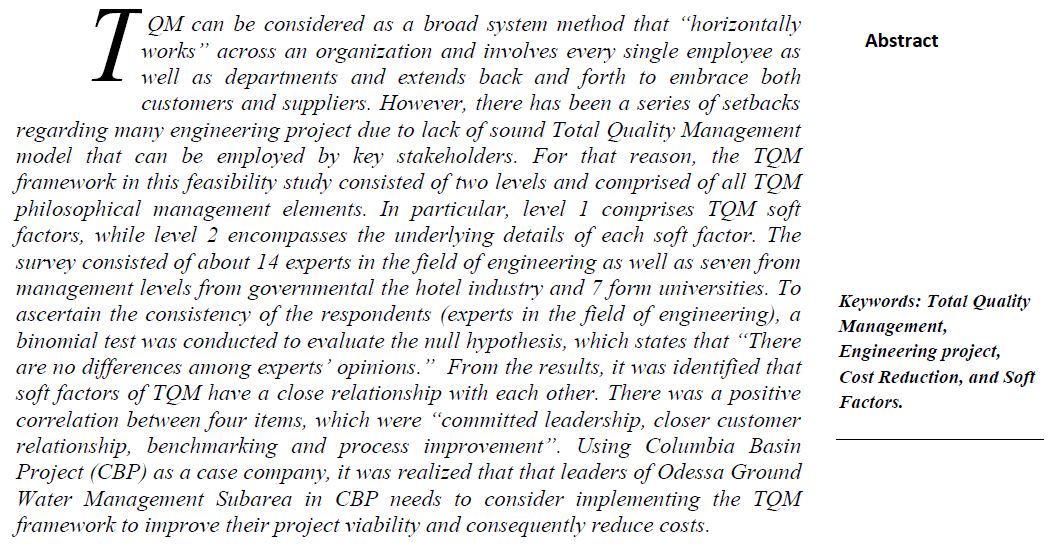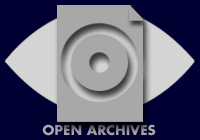Feasibility Study on the effectives of Total Quality Management model in Engineering Projects
Abstract
TQM can be considered as a broad system method that “horizontally works” across an organization and involves every single employee as well as departments and extends back and forth to embrace both customers and suppliers. However, there has been a series of setbacks regarding many engineering project due to lack of sound Total Quality Management model that can be employed by key stakeholders. For that reason, the TQM framework in this feasibility study consisted of two levels and comprised of all TQM philosophical management elements. In particular, level 1 comprises TQM soft factors, while level 2 encompasses the underlying details of each soft factor. The survey consisted of about 14 experts in the field of engineering as well as seven from management levels from governmental the hotel industry and 7 form universities. To ascertain the consistency of the respondents (experts in the field of engineering), a binomial test was conducted to evaluate the null hypothesis, which states that “There are no differences among experts’ opinions.” From the results, it was identified that soft factors of TQM have a close relationship with each other. There was a positive correlation between four items, which were “committed leadership, closer customer relationship, benchmarking and process improvement”. Using Columbia Basin Project (CBP) as a case company, it was realized that that leaders of Odessa Ground Water Management Subarea in CBP needs to consider implementing the TQM framework to improve their project viability and consequently reduce costs
Downloads
References
Ismyrlis, V. & Moschidis, O. (2015). (2015). The use of quality management systems, tools and techniques in ISO 900 2008 certified companies with multidimensional statistics: The Greek case. Total Quality Management & Business Excellence, 26(5-6), 497-514.
Jamei, M., Shahamat, N., & Fani, H. (2013). Feasibility Study of implementing Total Quality Managementin Shiraz Technical and Vocational Training Centers. International Journal of Advanced Studies in Humanities and Social Scienc, 1(9), 1300-1308.
Khanam, S., Talib, F. & Siddiqui, J. (2015). Identification of TQM enablers and IT resources for ICT industry: A Pareto analysis approach. International Journal of Information Quality (IJIQ), 4(1), 18-41.
Sapra, K. L. (2017). Total Quality Management in Engineering Education in India With special reference to Punjab and Chandigarh. Amity Business Review, 18(1), 154-167.
Shweta, B., Ruchi, G. & Monika, S. (2018). Total quality management: A critical literature review using Pareto analysis. International Journal of Productivity and Performance Management, 67(1), 128-154.
Sin Kit, Y., Muhammad Shahar, J., & Noormaizatul Akmar, I. (2018). The Impact Of Total Quality Management (Tqm) On Competitive Advantage: A Conceptual Mixed Method Study In The Malaysia Luxury Hotel Industries. Academy Of Strategic Management Journal, 17(2), 1-9.












